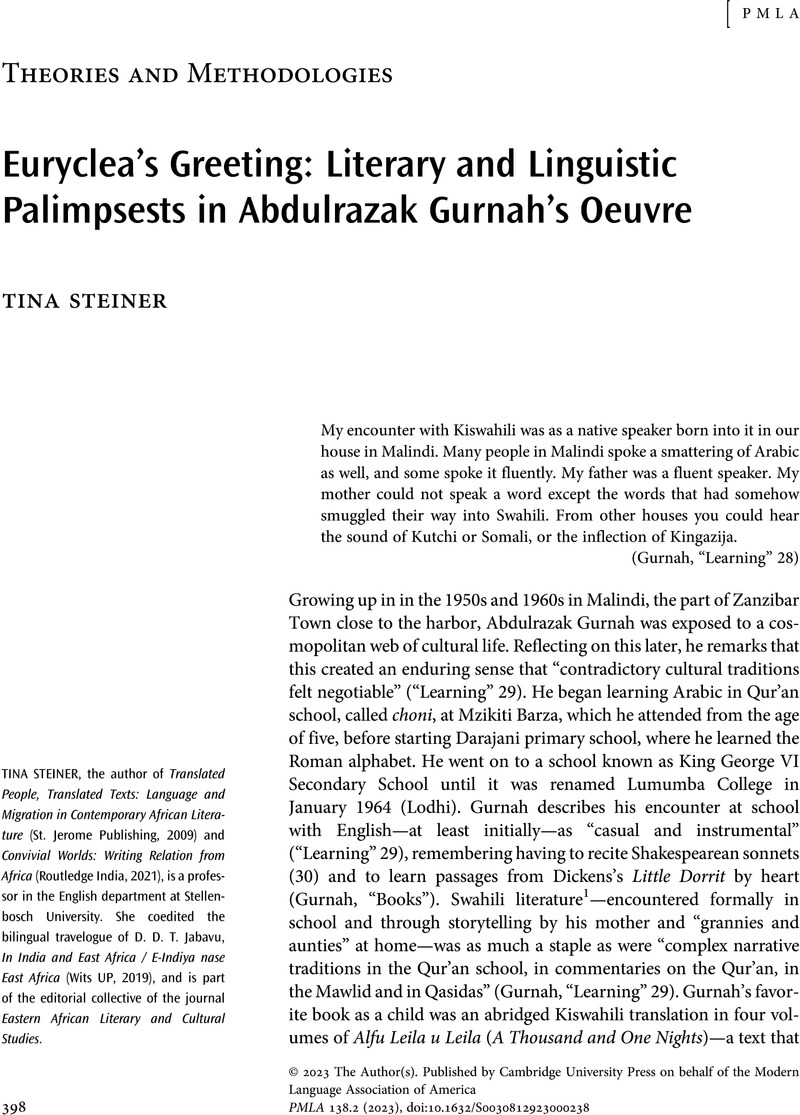Crossref Citations
This article has been cited by the following publications. This list is generated based on data provided by Crossref.
Musila, Grace A.
2024.
East and Central Africa 2023.
Literature, Critique, and Empire Today,
Vol. 59,
Issue. 4,
p.
534.
Maricocchi, Rita
2024.
Reframing colonial amnesia: German colonialism and multilingual memory in Abdulrazak Gurnah’s
Afterlives
.
Atlantic Studies,
p.
1.



